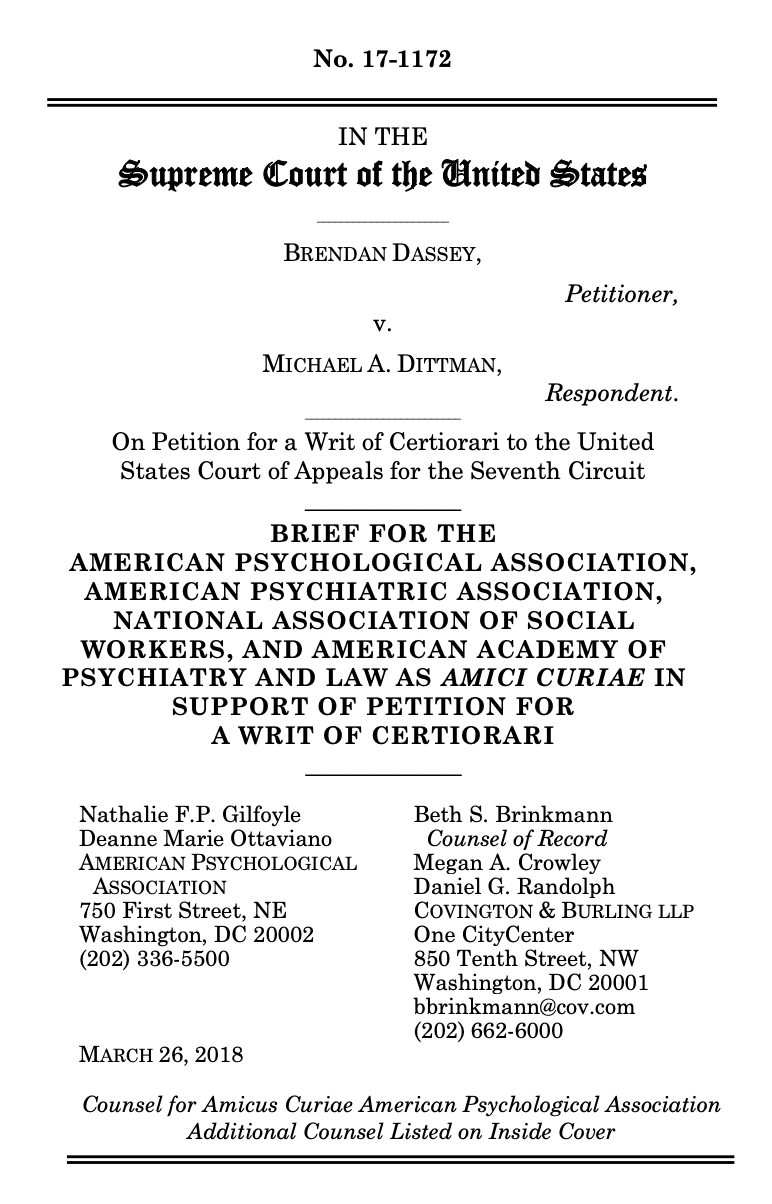
Summary of Argument
Judges and jurors harbor the stubborn belief that “innocent people do not confess.” People often find it difficult to fathom that an innocent person would falsely confess to a crime, absent physical force.6 In- deed, a false confession can contain suggestions of veracity, including non-public details about the crime.
But such details can become known to the individual before or during the interrogation through second- hand exposure to facts about the crime and other techniques.
The fact is that there are individuals who confess to crimes that they did not commit. Among the first 347 exonerations in the United States that were based on DNA evidence, false confessions contributed to 28% of those wrongful convictions. Among 1,927 cases in the National Registry of Exonerations, 13% of those wrongfully convicted had falsely confessed. And “the overwhelming majority of false confessions . . . occur in murder cases.”
False confessions are highly likely to be involuntary, as this Court has acknowledged. Indeed, “[t]he primary reason that innocent defendants confess is that they are coerced into doing so.”
Decades of psychological research demonstrate that certain techniques, known as maximization (exaggerating or fabricating the strength of evidence against the accused) and minimization (downplaying the seriousness of an offense through reassurance or excuses), are psychologically coercive. These techniques, both of which were used in the interrogation of petitioner Brendan Dassey, increase the rate of confessions that turn out to be false. See infra section I.
The risk of involuntary false confessions is of particular concern in cases involving juveniles. Studies based on real-world and experimental data demonstrate conclusively that juveniles—because they lack mature judgment and are especially vulnerable to pressure—are far more likely than adults to make false confessions. See infra section II. Research demonstrates the same tendency in individuals with intellectual deficits, for similar but distinct reasons. In particular, individuals with low intelligence have high suggestibility as well as difficulty comprehend- ing legal rights and consequences, both of which render them especially vulnerable to making false confessions under pressure of coercive questioning. See infra section III. Research confirms that “[i]n any discussion of dispositional risk factors for false confession, the two most commonly cited concerns are a suspect’s age . . . and mental impairment.”
This Court recognized these precise risks of coercion decades ago. In 1966, the Court made clear that “coercion can be mental as well as physical, and that the blood of the accused is not the only hallmark of an unconstitutional inquisition.” Miranda v. Arizona, 384 U.S. 436, 448 (1966) (quoting Blackburn v. Alabama, 361 U.S. 199, 206 (1960)). The Court also identified types of interrogation techniques that may “undermine[] [the] will to resist,” and “even give rise to a false confession.” Id. at 455 & n.24. The Court highlighted the practice of “posit[ing]” a suspect’s guilt “as a fact,” as well as the technique of “minimiz[ing] the moral seriousness of [an] offense,” such as by “cast[ing] blame on the victim or on society.” Id. at 450.
The Court also established long ago that the voluntariness of a confession, i.e., whether the confession was given freely or as a result of coercion, depends upon “the techniques for extracting the statements, as applied to this suspect.” Miller v. Fenton, 474 U.S. 104, 116 (1985). The Court recognized that juveniles and individuals with low intelligence are particularly vulnerable to psychologically manipulative techniques—directing that “the greatest care must be taken to assure that the admission was voluntary” in the case of a juvenile, In re Gault, 387 U.S. 1, 55 (1967), and that a suspect’s “mental condition” be weighed as a “significant factor in the ‘voluntariness’ calculus,” Colorado v. Connelly, 479 U.S. 157, 164 (1986). See also Reck v. Pate, 367 U.S. 433, 442 (1961) (citing “subnormal intelligence” of youth as basis for invalidating confession).
Petitioner’s case exemplifies all three of these significant risk factors. Law enforcement officers used psychologically coercive interrogation techniques when questioning petitioner, who was a juvenile with low intelligence. And the purported confession that resulted from that interrogation “furnished the only serious evidence supporting his murder conviction.” See Pet. App. 40a (Wood, C.J., dissenting).
Review is warranted because the opinion below is contrary to this Court’s clearly established precedent on voluntariness determinations, as illuminated by decades of psychological research. And this case is not unique. Exoneration studies establish that false confessions in jurisdictions around the country are responsible for an unsettlingly high proportion of wrongful convictions, and that juveniles and those with low intelligence are overrepresented among those who are wrongly convicted based on false confessions. Denial of review would have far-reaching harmful consequences, because it would sanction the continued widespread misapplication of this Court’s clear standards on voluntariness determinations. See Pet. Br. 30–35.